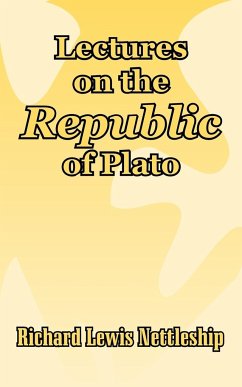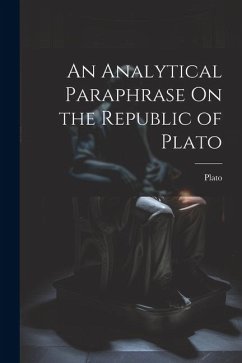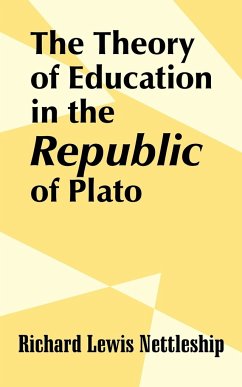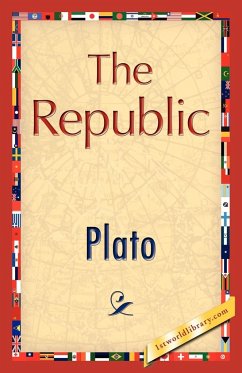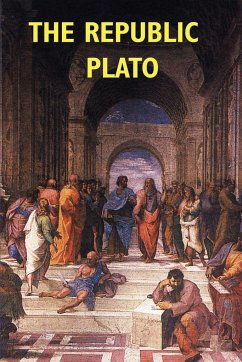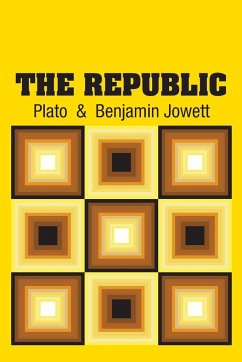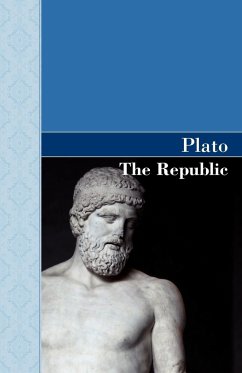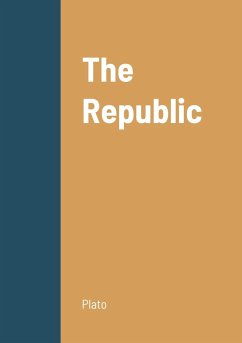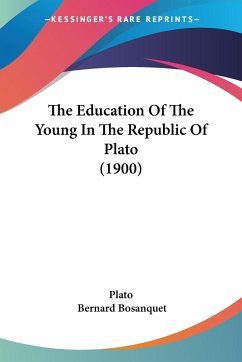
The Education Of The Young In The Republic Of Plato (1900)
Versandkostenfrei!
Versandfertig in 1-2 Wochen
25,99 €
inkl. MwSt.

PAYBACK Punkte
13 °P sammeln!
The Education Of The Young In The Republic Of Plato is a classic philosophical work written by the ancient Greek philosopher Plato. Originally published in 1900, this book provides a detailed analysis of Plato's views on education and its role in creating an ideal society. The book explores the various aspects of education, including the importance of physical and mental training, the role of music and literature in shaping character, and the need for a strong moral foundation. In addition, the book examines Plato's ideas on the nature of knowledge, the purpose of education, and the relationsh...
The Education Of The Young In The Republic Of Plato is a classic philosophical work written by the ancient Greek philosopher Plato. Originally published in 1900, this book provides a detailed analysis of Plato's views on education and its role in creating an ideal society. The book explores the various aspects of education, including the importance of physical and mental training, the role of music and literature in shaping character, and the need for a strong moral foundation. In addition, the book examines Plato's ideas on the nature of knowledge, the purpose of education, and the relationship between the individual and the state. With its insightful analysis and thought-provoking ideas, The Education Of The Young In The Republic Of Plato remains an essential read for anyone interested in philosophy, education, or ancient Greek thought.This scarce antiquarian book is a facsimile reprint of the old original and may contain some imperfections such as library marks and notations. Because we believe this work is culturally important, we have made it available as part of our commitment for protecting, preserving, and promoting the world's literature in affordable, high quality, modern editions, that are true to their original work.



